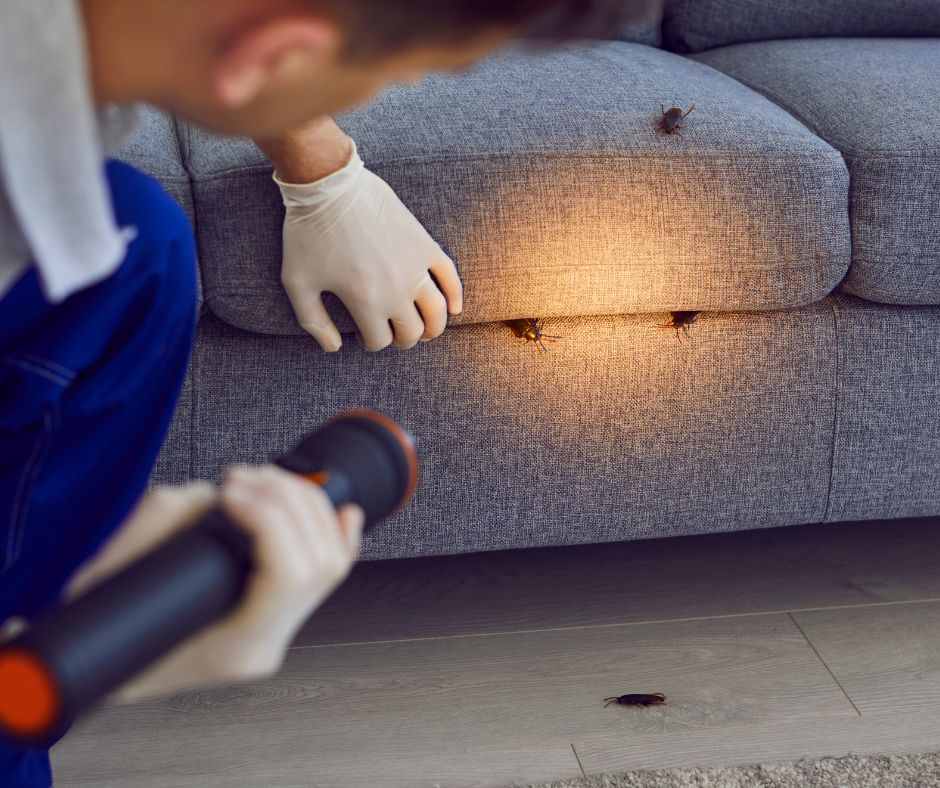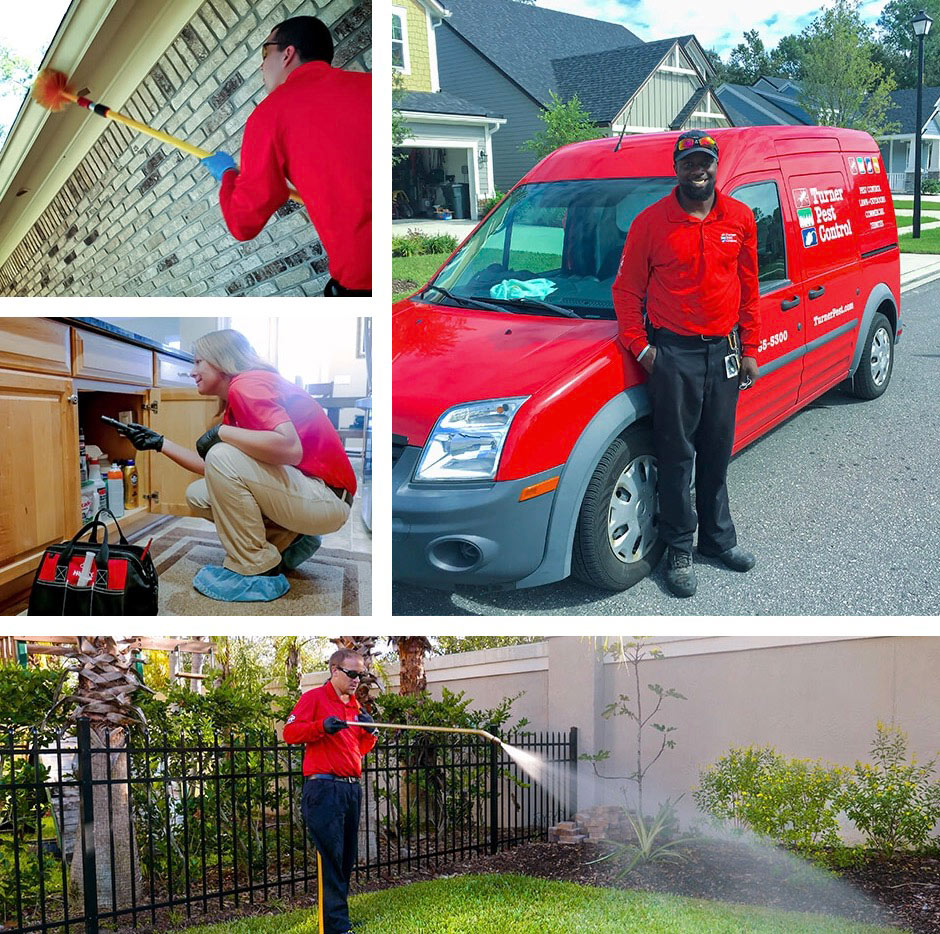Affordable and Trusted Exterminator in Port Charlotte for All Your Pest Control Issues
Find Out About the current Advancements in Bug Control and Just How to Carry Out Efficient Therapy Solutions
In recent years, the field of pest control has witnessed substantial innovations, driven by the need for sustainable and reliable treatment solutions. Cutting-edge strategies such as Integrated Parasite Management (IPM) integrate environmentally friendly techniques with cutting-edge innovation, improving both effectiveness and ecological duty.
Eco-Friendly Insect Control Options
In the last few years, the need for environment-friendly insect control options has surged as services and property owners alike seek lasting alternatives to traditional chemical therapies. This change is driven by expanding environmental understanding and a desire to minimize the wellness risks connected with synthetic chemicals.

Environmentally friendly parasite control techniques encompass a series of strategies that prioritize using natural compounds and methods. Integrated Pest Management (IPM) is one such approach, combining organic, social, and mechanical tactics to handle bug populations while reducing dependence on chemicals (Wildlife removal services). This alternative method emphasizes prevention through habitat adjustment and the intro of all-natural predators, thus promoting a balanced environment
An additional popular alternative is using botanical pesticides stemmed from plants, which often tend to be much less harmful to non-target microorganisms. Products like neem oil and diatomaceous planet have actually gotten traction for their efficiency in regulating insects while presenting marginal threats to human wellness and the environment.
Additionally, exclusion methods, such as securing access factors and maintaining sanitation, play a crucial role in eco-friendly insect monitoring. By taking on these lasting techniques, companies and people can efficiently take care of bugs while advertising a much healthier earth for future generations.
Smart Innovation in Pest Monitoring
Advancement is reshaping the landscape of bug monitoring, with smart technology becoming a critical force in boosting efficiency and effectiveness - Wildlife removal services. The integration of Internet of Things (IoT) gadgets, synthetic knowledge (AI), and information analytics is transforming how parasite control specialists come close to infestations
Smart traps geared up with sensing units can find pest activity in real-time, sending out prompt signals to operators. This enables for prompt actions, reducing damages and lowering the requirement for considerable treatments. In addition, AI algorithms evaluate historical information to anticipate pest actions, making it possible for positive interventions based upon environmental conditions and problem patterns.
Drones and computerized vehicles are also playing a considerable role in parasite management, giving airborne assessments of large locations, determining hotspots, and also distributing targeted therapies. These modern technologies not just enhance operations but likewise enhance safety and security by limiting human exposure to possibly damaging chemicals.
In addition, mobile applications equip customers to check insect task and gain access to professional recommendations, promoting a collaborative strategy to pest administration. On the whole, the adoption of wise innovation is setting a new standard in insect control, stressing data-driven choices and lasting techniques that ultimately profit both house owners and professionals alike.
Integrated Pest Management Approaches
Integrated Parasite Monitoring (IPM) employs a holistic technique to pest control, combining numerous methods to properly take care of bug populaces while reducing threats to human wellness and the atmosphere. IPM focuses on comprehending the pest life cycle, their all-natural opponents, and the environment in which they prosper.
Among the fundamental parts of IPM is checking pest populaces via normal evaluations and data collection. This permits the identification of insect limits, figuring out when intervention is needed. Cultural methods, such as crop environment, rotation, and hygiene manipulation, are important in minimizing insect prevalence index and promoting plant health.
Mechanical controls, including catches and obstacles, are likewise essential in IPM. These approaches can literally remove or prevent bugs without the use of chemicals. When needed, the wise application of chemical controls is used, concentrating on targeted therapies that decrease environmental influence.
Education and collaboration among stakeholders, including farmers, bug control specialists, and the neighborhood, are important for the successful application of IPM techniques. By Read Full Article prioritizing lasting practices, IPM not just addresses pest concerns but likewise cultivates a much healthier community.
Biological Control Methods
Many biological control techniques are significantly identified for their performance in managing insect populations while promoting eco-friendly balance. These approaches harness all-natural predators, bloodsuckers, and pathogens to reduce pest numbers without depending on artificial chemicals. The intro of ladybugs can properly regulate aphid populaces, while nematodes target soil-dwelling pest larvae.
Furthermore, the use of microbial chemicals, such as Bacillus thuringiensis (Bt), supplies an eco-friendly alternative for handling caterpillar insects. These items specifically target pest types, decreasing injury to valuable pests and pollinators. Furthermore, conservation biological control stresses boosting environments for all-natural opponents, such as birds and useful insects, therefore encouraging their visibility in farming systems.
Research proceeds to disclose innovative approaches within this area, such as using scents to interfere with pest mating patterns or the development of biocontrol agents with genetic design. Implementing these methods can cause sustainable insect management methods that reduce the reliance on chemical interventions, eventually fostering healthier ecosystems. As recognition of these techniques grows, they are ending up being indispensable components of integrated parasite monitoring (IPM) approaches, using an equilibrium between efficient parasite control and environmental stewardship.
DIY Pest Control Solutions
As home owners look for effective methods to tackle pest issues, do it yourself insect control remedies have obtained appeal for their ease of access and cost-effectiveness. These techniques encourage people to deal with infestations making use of readily available products and techniques, pest control business typically without the need for expert treatment.

In addition, keeping correct hygiene and routine assessments can avoid parasite entrance and nesting (Wildlife removal services). Simple practices, such as sealing cracks, eliminating food sources, and decluttering, can considerably diminish bug populaces. Catches, both homemade and readily available, can likewise use efficient services for surveillance and managing specific bugs like rodents or bugs

Final Thought
The integration of environmentally friendly pest control options, clever innovation, and innovative administration techniques offers a thorough technique to effective bug administration. By embracing Integrated Insect Monitoring (IPM) and using biological control methods, alongside DIY solutions, sustainable and responsible pest control can be achieved.
Green pest control techniques encompass a variety of techniques that focus on the usage of natural substances and practices. Integrated Insect Administration (IPM) is one such strategy, combining organic, social, and mechanical tactics to manage bug populaces while minimizing reliance on chemicals. As understanding of these methods grows, they are becoming essential parts of incorporated insect management (IPM) methods, using an equilibrium between effective bug control and ecological stewardship.
The combination of environmentally friendly pest control options, clever innovation, and cutting-edge administration strategies offers a comprehensive strategy to reliable insect management. By welcoming Integrated Insect Management (IPM) and using organic control methods, along with Do it yourself solutions, sustainable and responsible bug control can be accomplished.